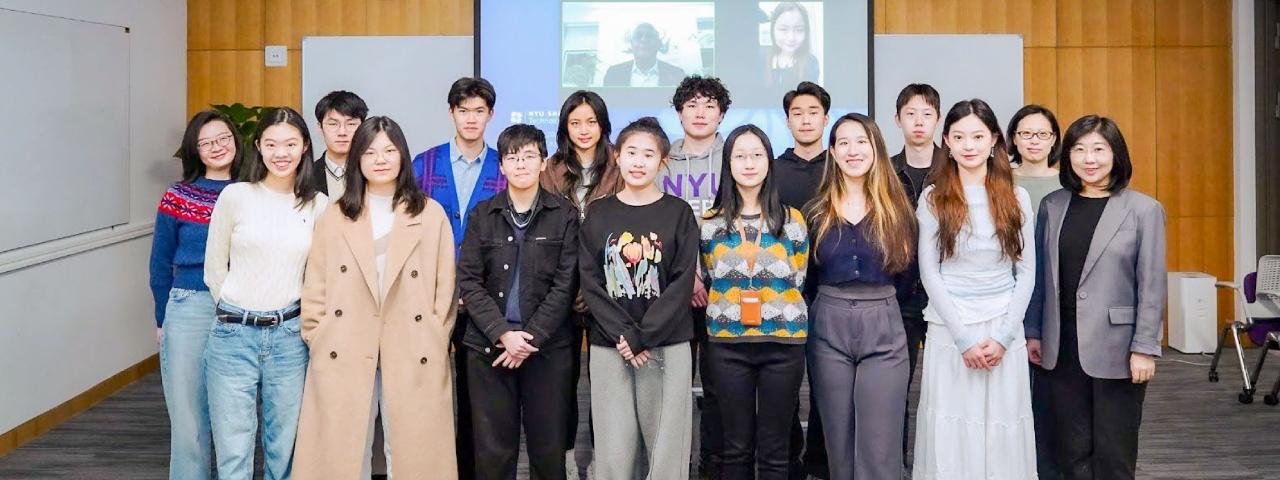
This year, NYU Shanghai’s Business and Economics Honors Program will graduate its eighth cohort of students. Modeled after a similar program at NYU Stern School of Business, the program is taught by a distinguished faculty body, including Nobel laureates and other distinguished scholars and teachers. Like the program at Stern, the program is designed to challenge students at a new level.
Since its founding, veteran educator Marti Subrahmanyam's approach has been to provide first-class research training to top undergraduate business students. Professor Subrahmanyam, the Charles E. Merrill Professor of Finance, Economics, and International Business at NYU’s Stern School of Business, began designing the program at Stern in 1998 to meet the changing needs of the business program’s top undergraduates. “They needed a curriculum more challenging and requiring better than average academic ability, motivation, hard work, and willingness to learn research skills that students do not acquire in their regular course work,” he remembers.
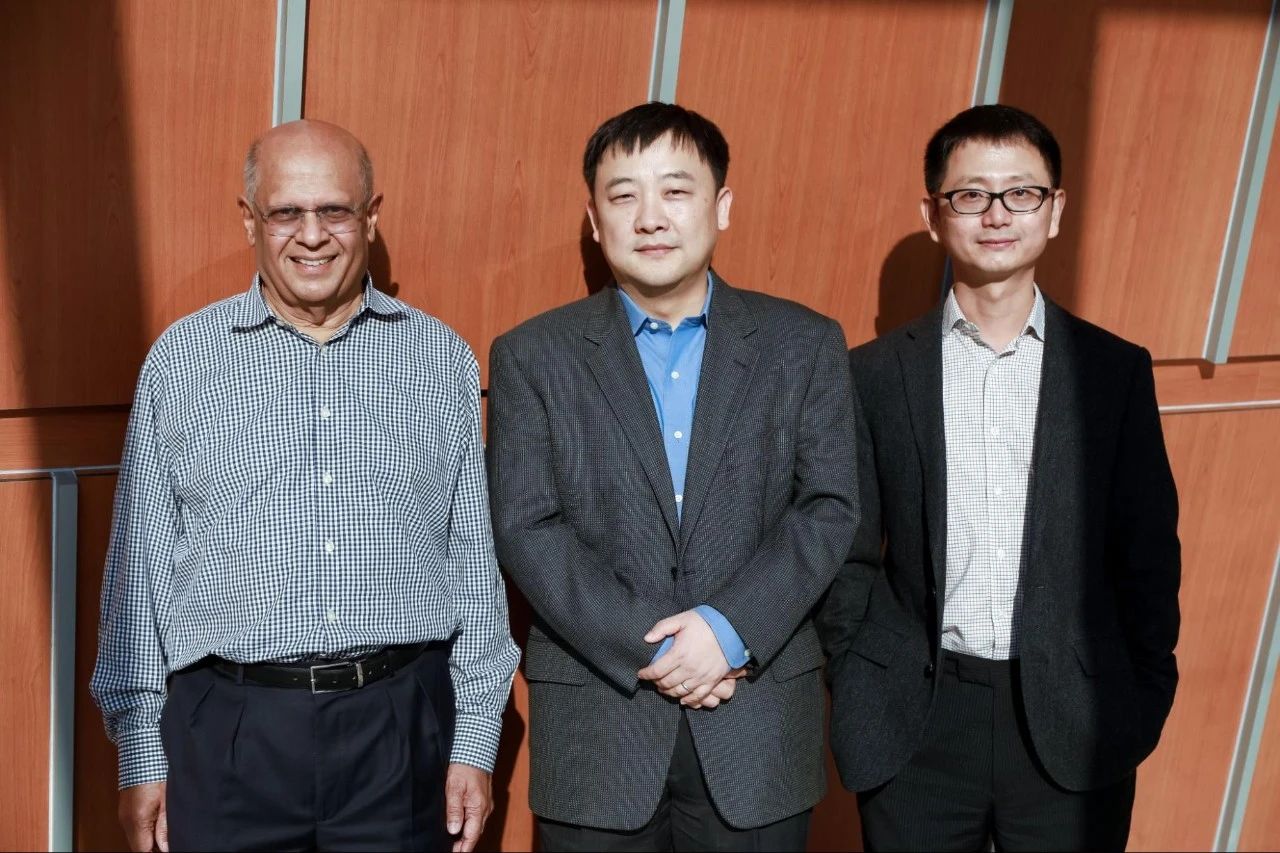
Professor Marti Subrahmanyam, Professor Chen Yuxin, and Professor Zhang Jiawei from NYU Stern School of Business (Honors Program faculty advisor) at NYU Shanghai in 2016
When it came time to create an honors program at NYU Shanghai, Subrahmanyam took on the role of program director, transferring his wealth of experience and knowledge to NYU’s newest campus. Each year, a select group of high-achieving students is invited to join the program for their senior year. The program includes a weekly seminar and one-on-one mentoring, guiding students through independent research projects at the graduate level. This experience broadens their academic horizons and gives them valuable first-hand research experience.
NYU Shanghai’s Business and Economics Honors Program maintains the same high standards and intensity as the program in New York, with the only difference being that it has expanded to include students studying economics and data science. Dean of Business and Global Distinguished Professor of Business Chen Yuxin says that this evolution reflects students’ interests, with more business majors choosing to minor or double major in data science and vice versa. "Students have the opportunity to explore almost every aspect of the business program, gaining a comprehensive understanding of the entire business discipline,” says Chen. “It is a typical multidisciplinary and interdisciplinary learning experience.”
Students benefit from one-on-one guidance from more than 100 professors at NYU’s three campuses, including in the past, Nobel Laureates Robert Engle, Michael Spence, and Thomas J. Sargent, as well as distinguished scholars such as Aswath Damodaran. Weekly sessions led by professors from the National University of Singapore, the University of Hong Kong, Peking University, and Fudan University expose students to the latest research in fields such as finance, marketing, economics, and data science. "This is our commitment to undergraduate education,” explains Chen. “It can be said that it is a cost-no-object investment.”
Assistant Professor of Finance Christina Dan Wang and Assistant Professor of Economics Ye (Wendy) Jin, co-coordinators of the program in Shanghai, say that students in the program are strongly capable and highly motivated to do independent research. "Without trying, they would not be able to fully understand their research capabilities or how to surpass their existing boundaries,” says Wang. “They wouldn't know if pursuing a research path is suitable for them."

Li Yuxuan at MIT
Many graduates of the program have gone on to tremendous success, generally taking one of two paths. Some choose to pursue further studies, while others transfer the skills they acquire to the industry, excelling in their professional careers.
Li Yuxuan ’22 still remembers the excitement she felt when she was invited to join the program during her junior year. "At last it came," she remembers thinking when the email arrived. After graduating, Li went on to pursue a Master's degree in Finance at the Massachusetts Institute of Technology (MIT). Upon completing her degree, she will join the prestigious consulting firm Bain & Company to start off her professional career.
Li says the year-long research journey in the program helped her hone self-drive and essential project management skills that will give her a competitive advantage in her professional career. “Apart from seminars, the scheduling of other tasks is primarily up to you. You have to plan and manage your time on your own," she explains. “This is similar in the workplace, where bosses won't guide you step by step for every task. You have to take initiative, feel a sense of responsibility for the entire project, break it down into steps, and independently consider the significance of each step in the overall picture.”

Lu Shan during his economics PhD program at UCSB
Lu Shan ’23, who pursued a double major in Economics and Data Science and went on to study for his PhD at UCSB, says that the program could be intense and demanding. "I had to apply for PhD programs, complete my honors project thesis and capstone, do an internship, and take four courses at the same time,” he remembers. “I basically slept for only three hours a day, sometimes even staying overnight in the lab. After such a grueling experience, he now feels that the challenges of being a first-year PhD student can’t compare.
While in the program, Lu found the experimental design of his research a challenge, as it had to integrate psychological surveys with game theory models while ensuring a feasible and clean data collecting procedure. During his research, Adam Brandenburger, the JP Valles Chair Professor at NYU Stern, Director of the NYU Shanghai Program on Creativity + Innovation, and Head of the Economics Area, met with Lu biweekly on Zoom and the two exchanged email regularly to discuss research progress and decisions. "It was impressive how open and respectful Adam has been to undergraduate students like me, which significantly boosted the efficiency of our communication." Lu says.
Later on, when Lu was applying for PhD programs, Professor Brandenburger wrote a recommendation letter and Lu submitted his honors project thesis as part of the application. "The process of doing the project was tough, but I stayed motivated throughout. Even if an experiment turned out unsuccessful, there was still something to learn,” he says. “Adam always tells me that research is about continuous progress and persistent endeavor, and I can feel myself now."

Professor Adam Brandenburger
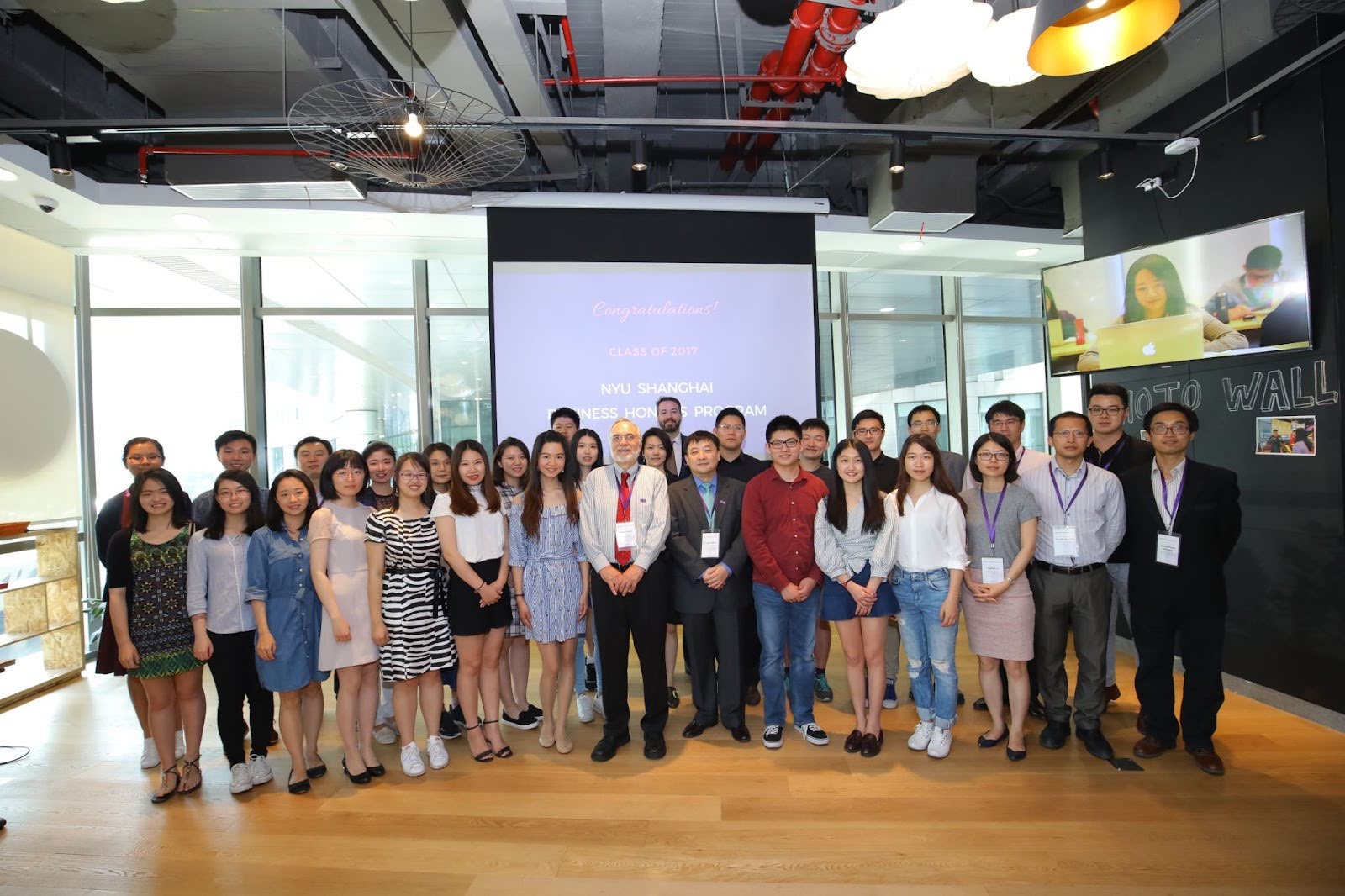
The 2017 Business Honors Program cohort with Deputy Dean of NYU Stern Professor Eitan Zemel (middle of front row), who hosted the graduation ceremony.
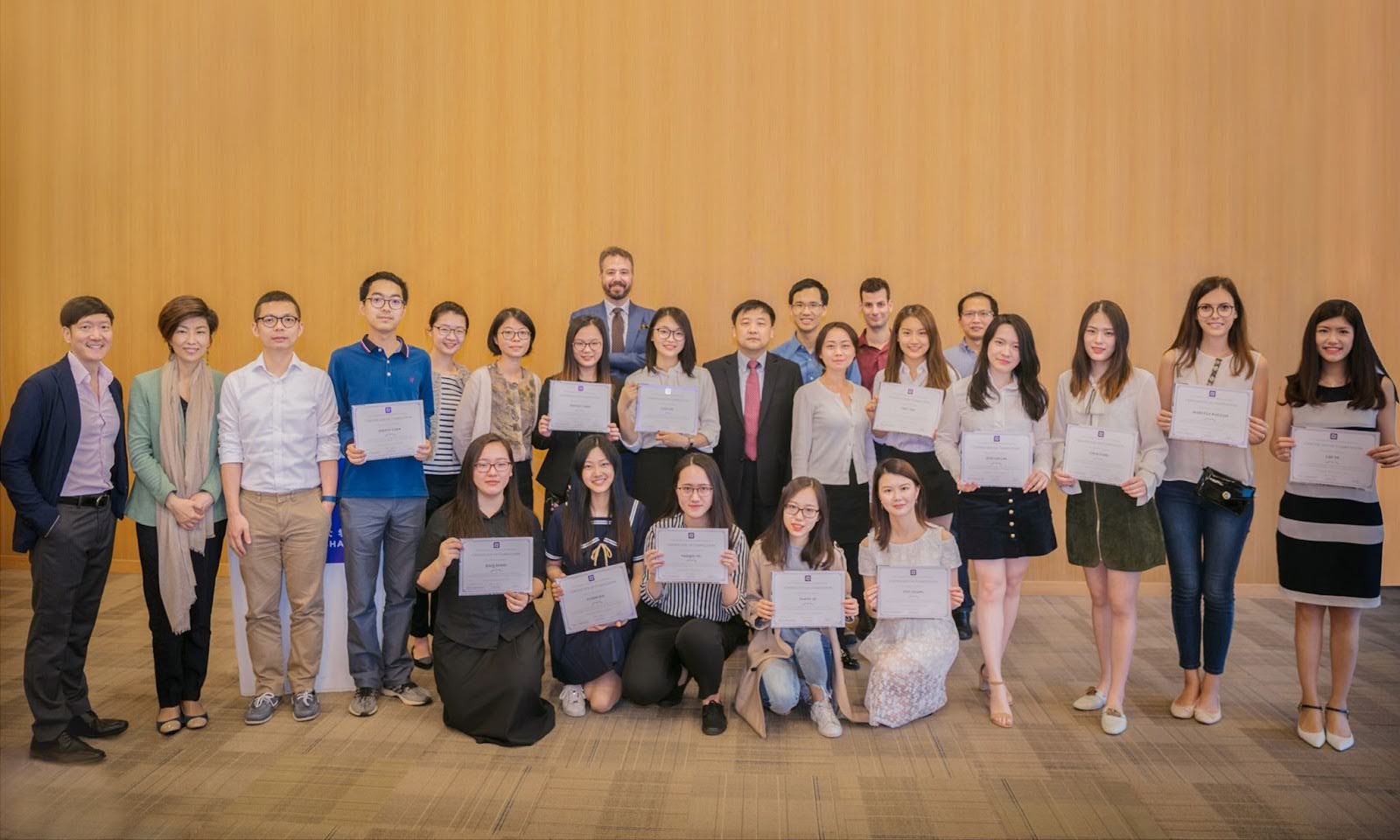
Class of 2018 cohort
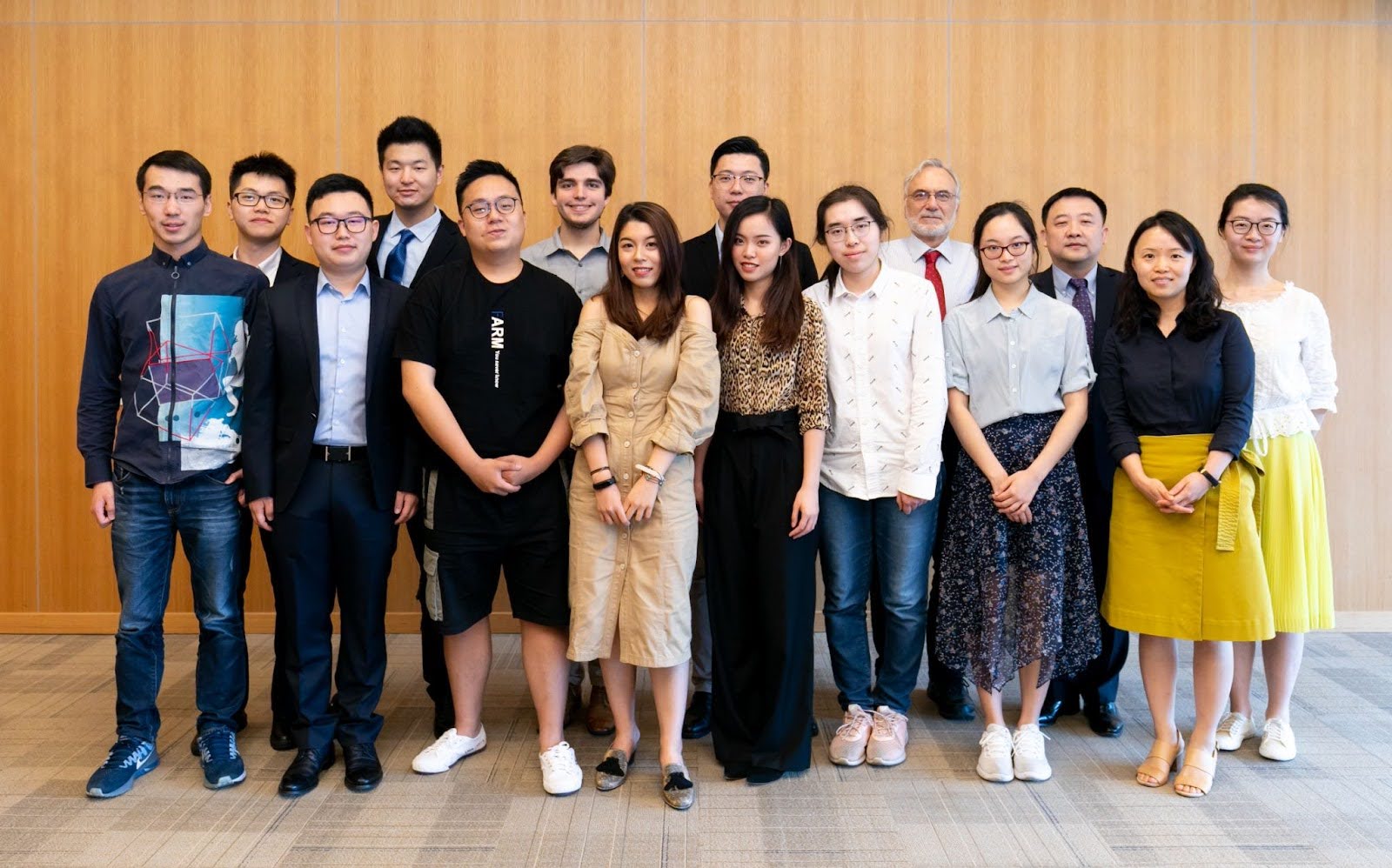
Class of 2019 cohort
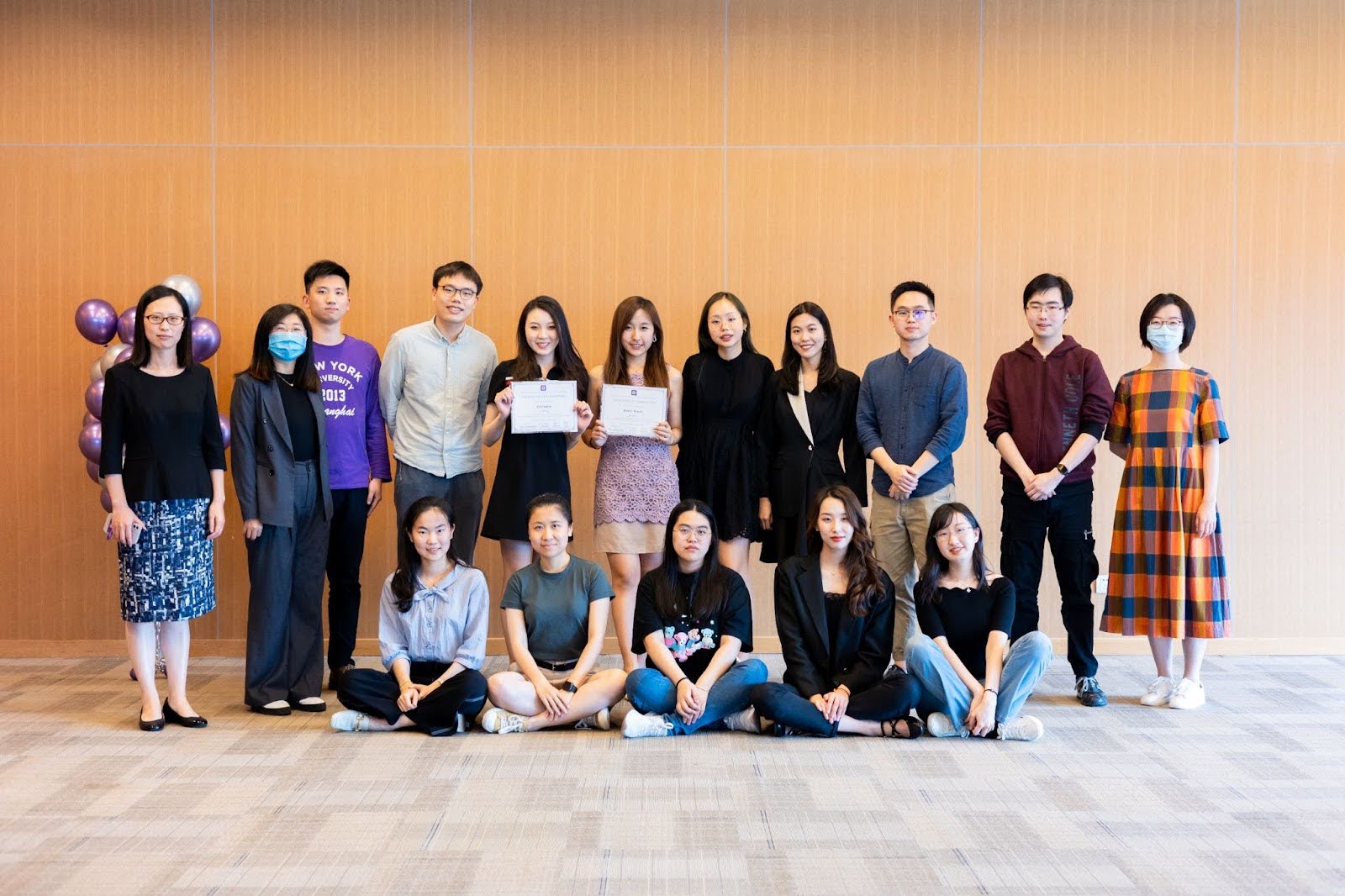
Class of 2021 cohort
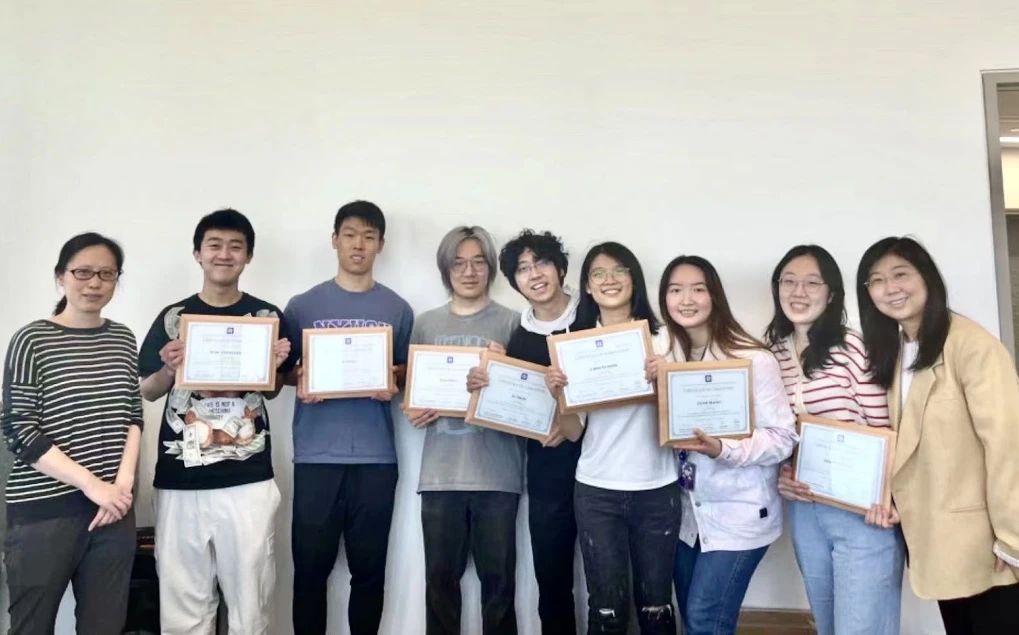
A portion of the Class of 2023 cohort celebrating their completion of the program.

